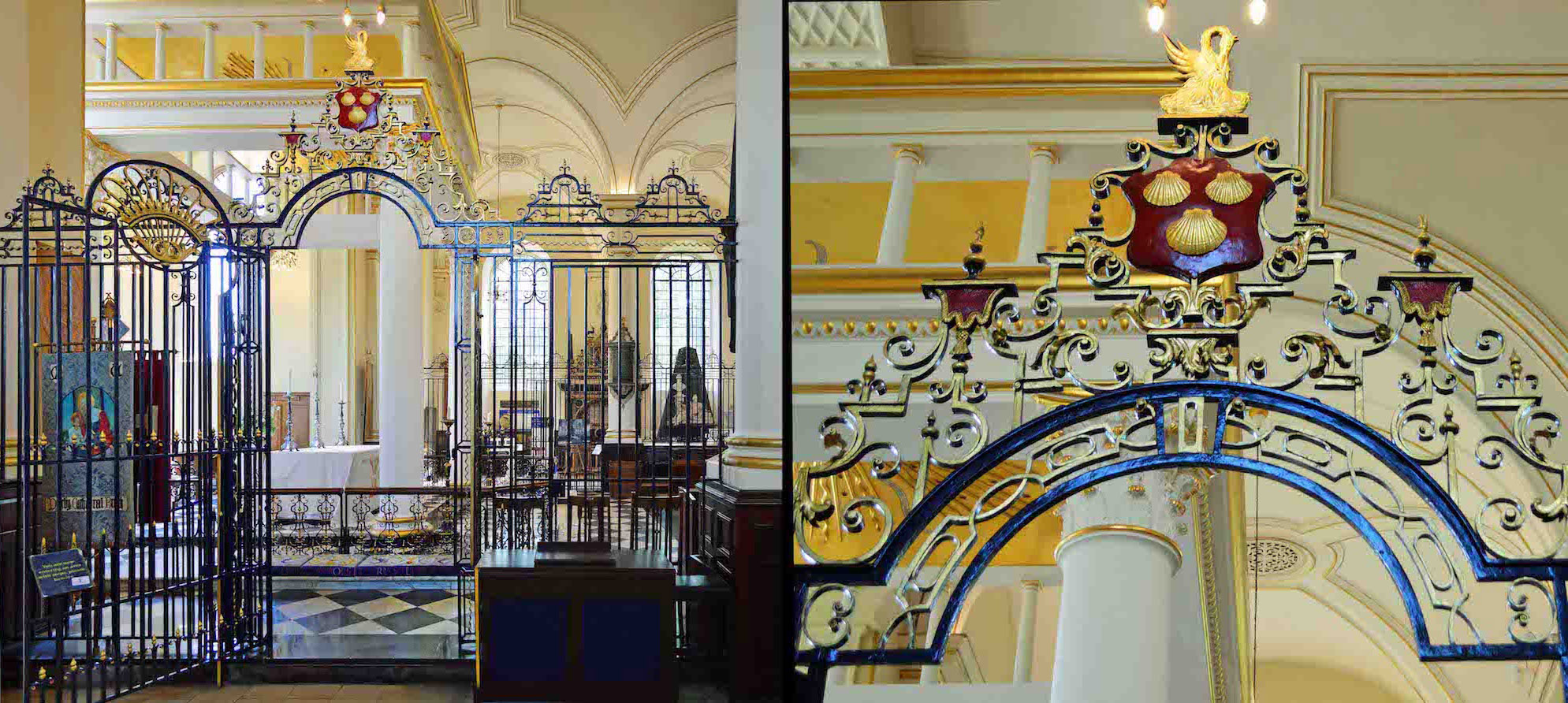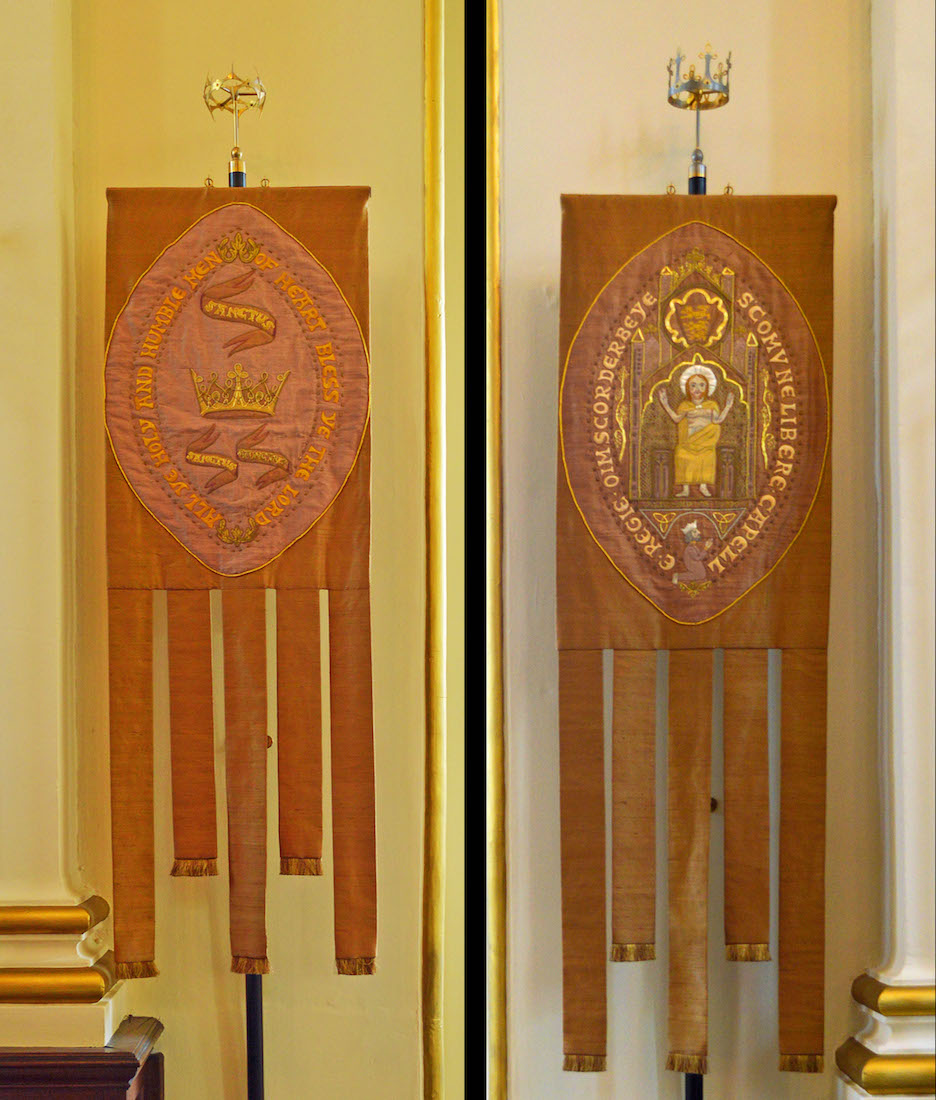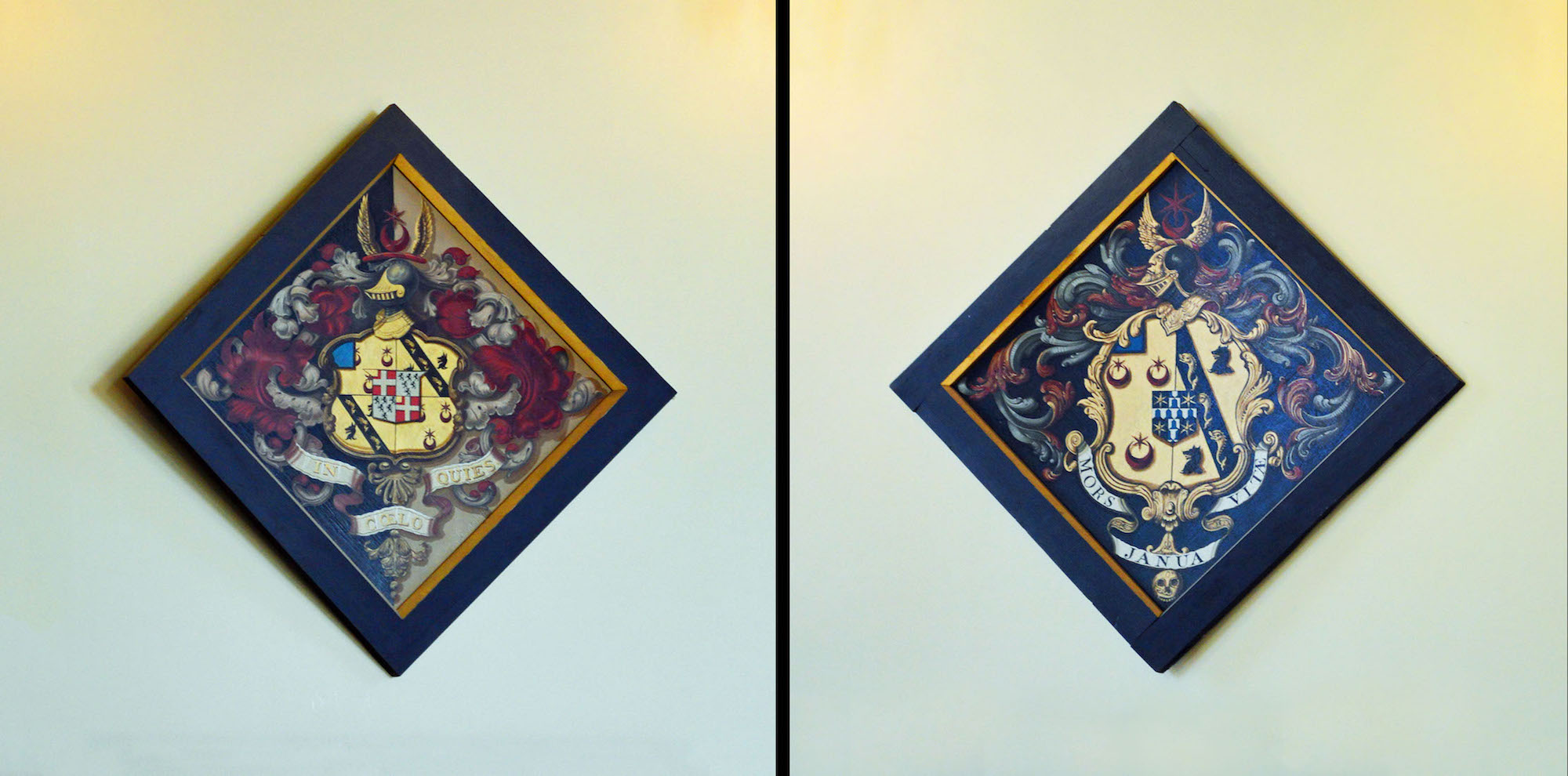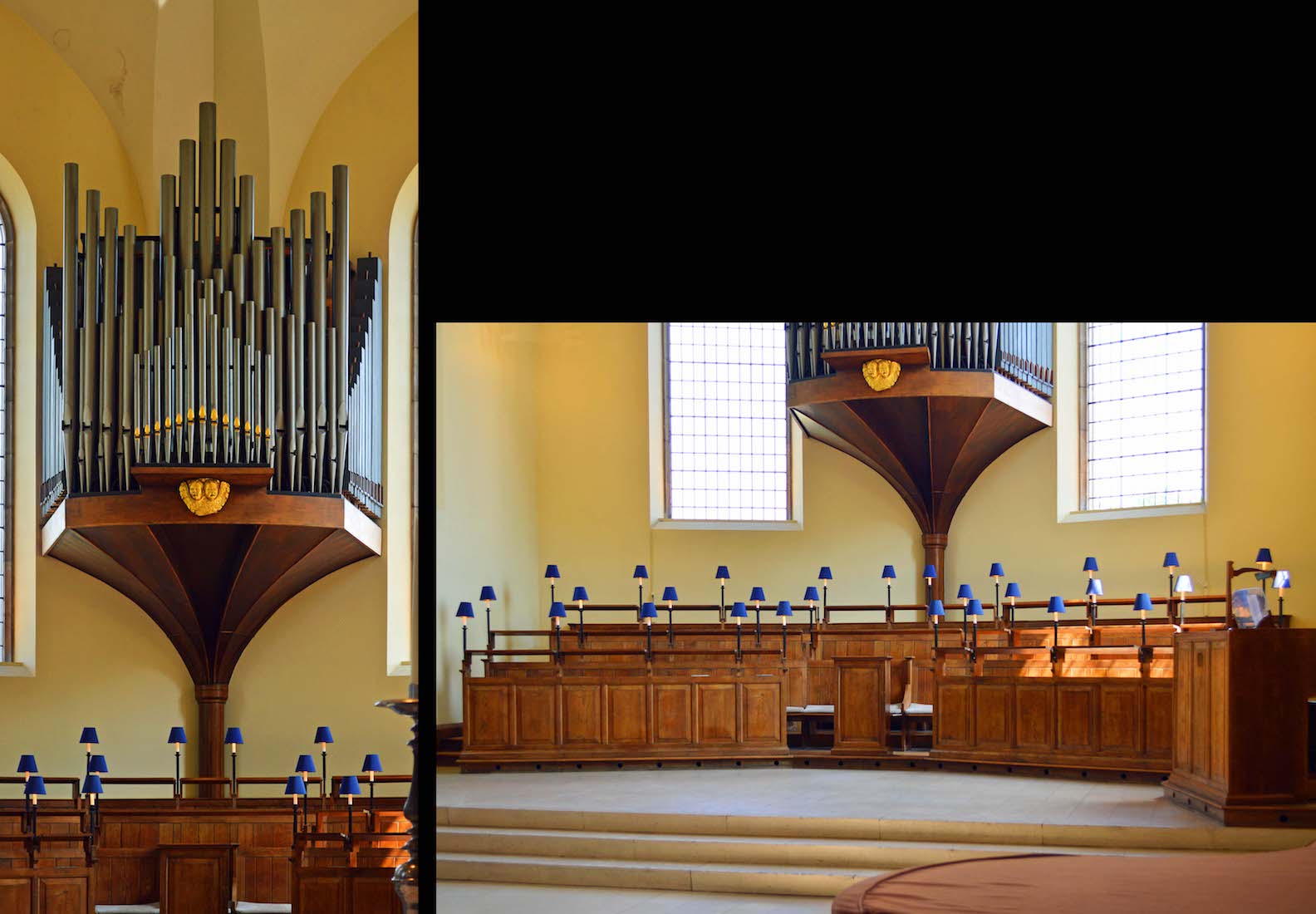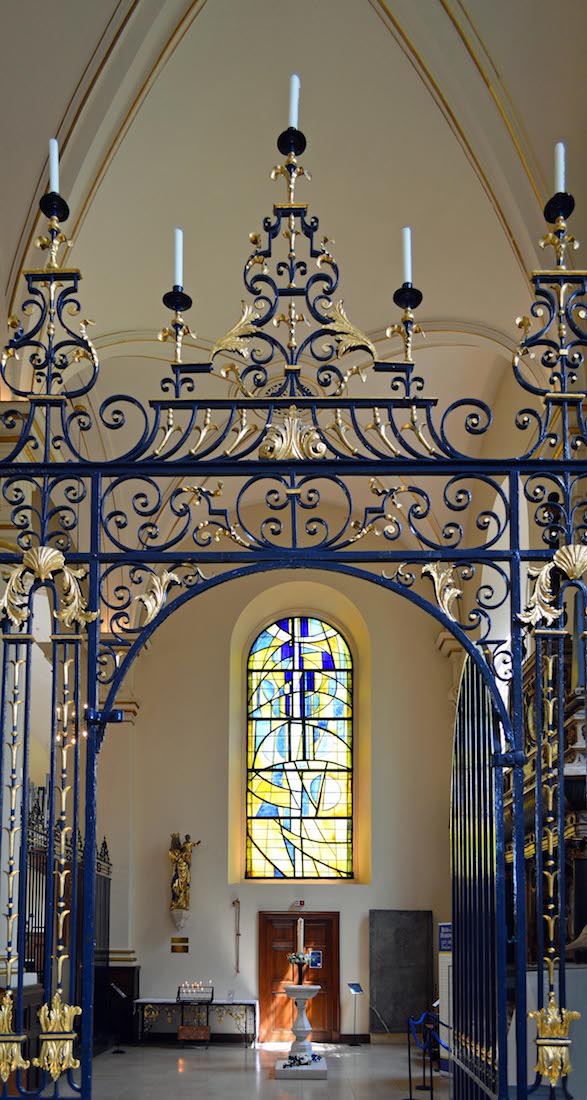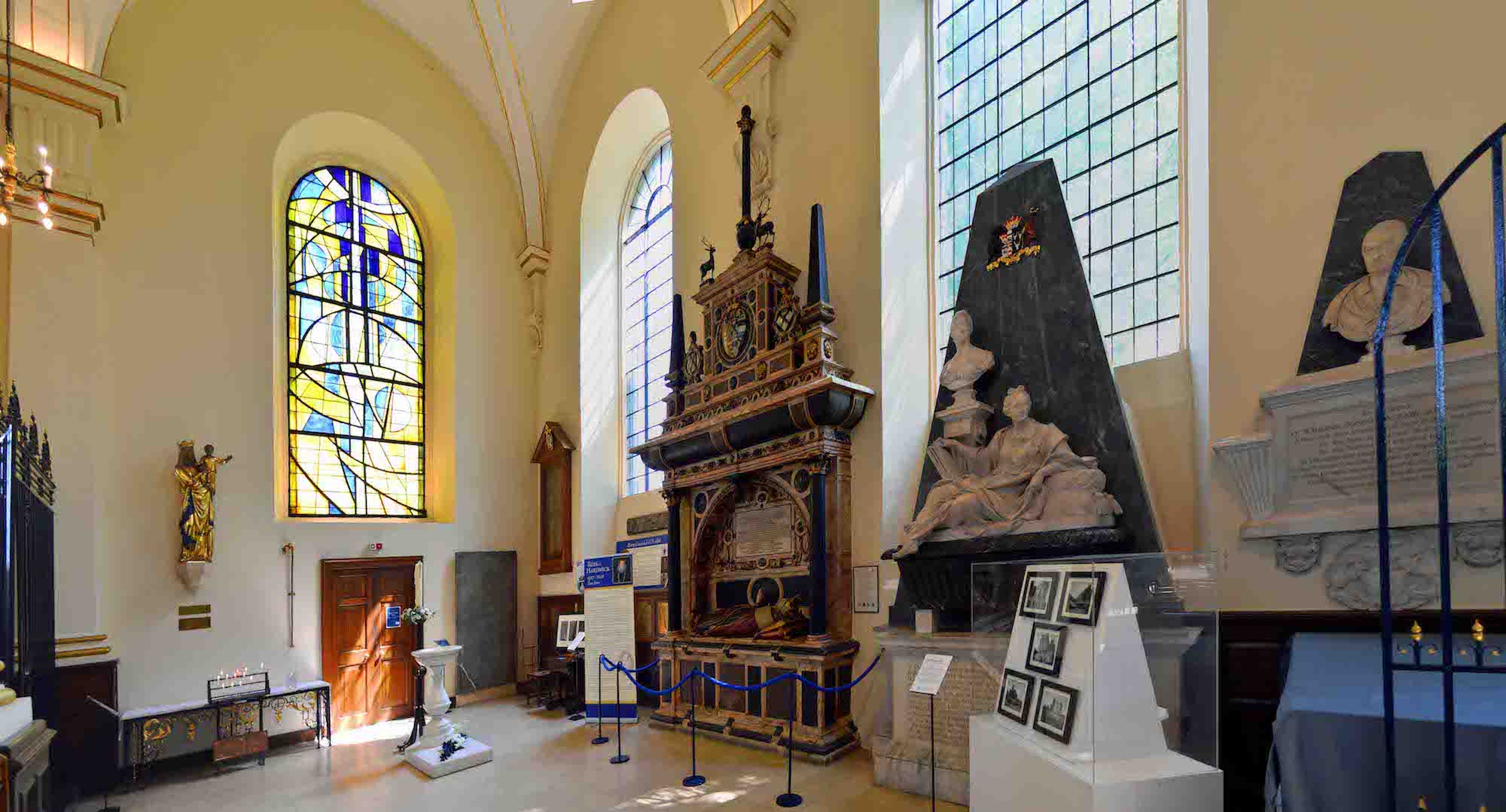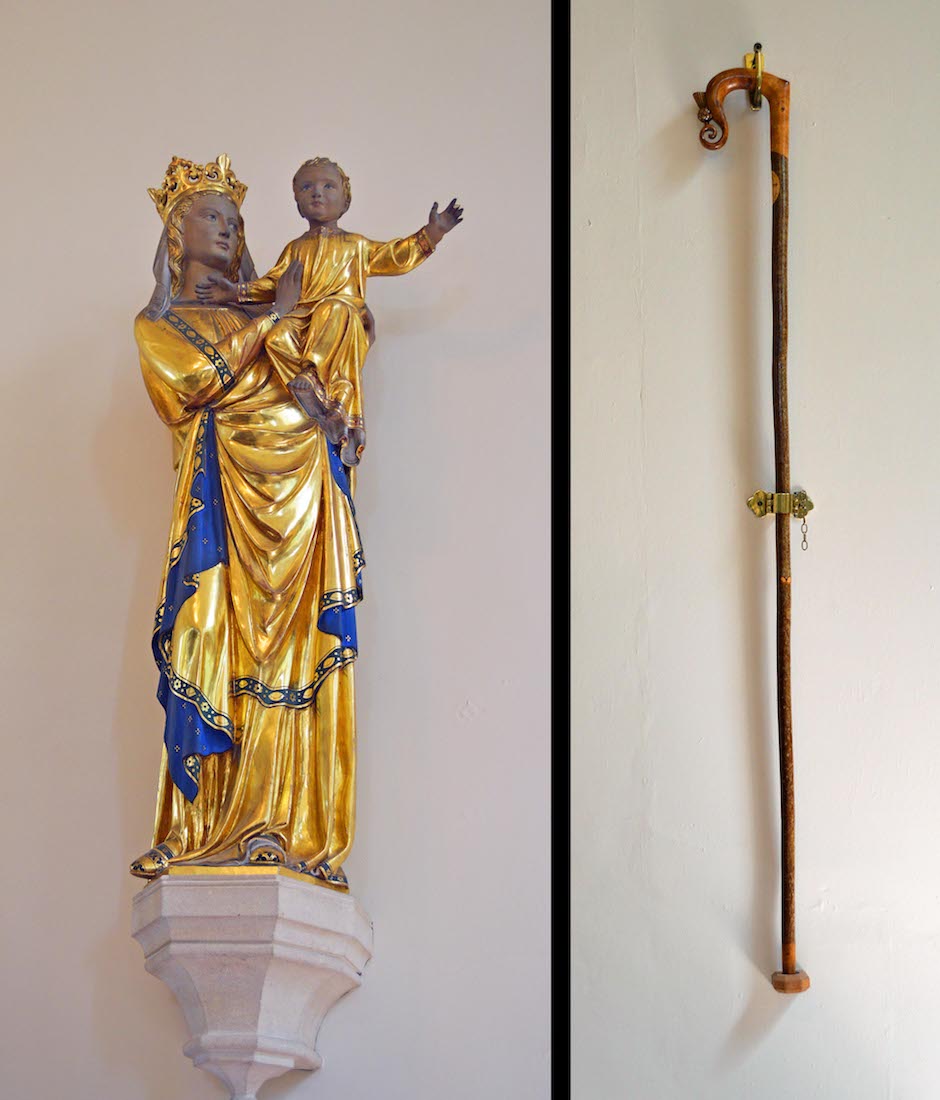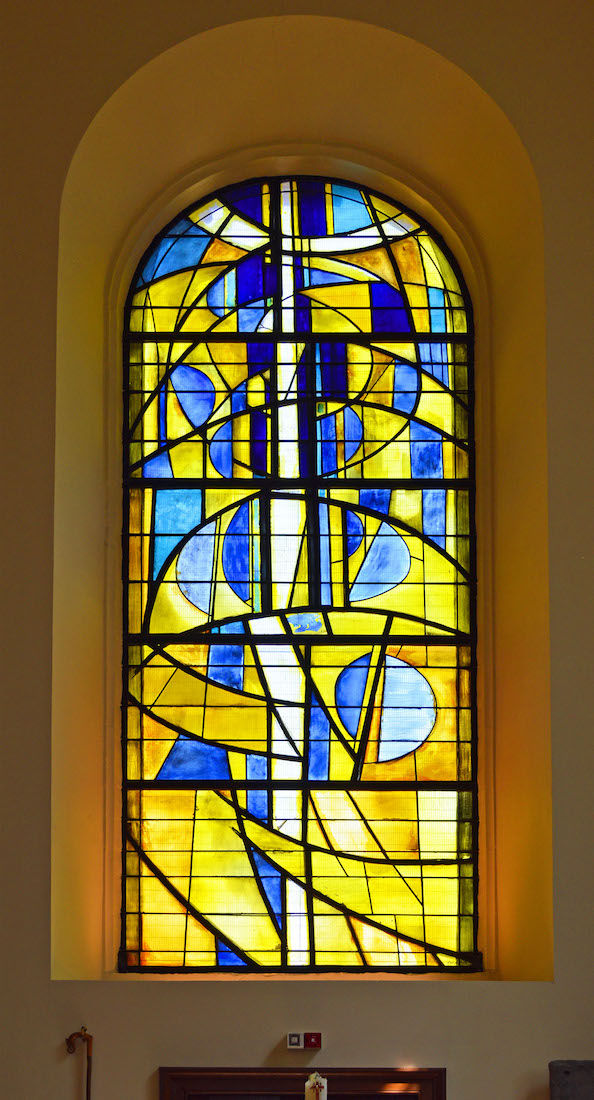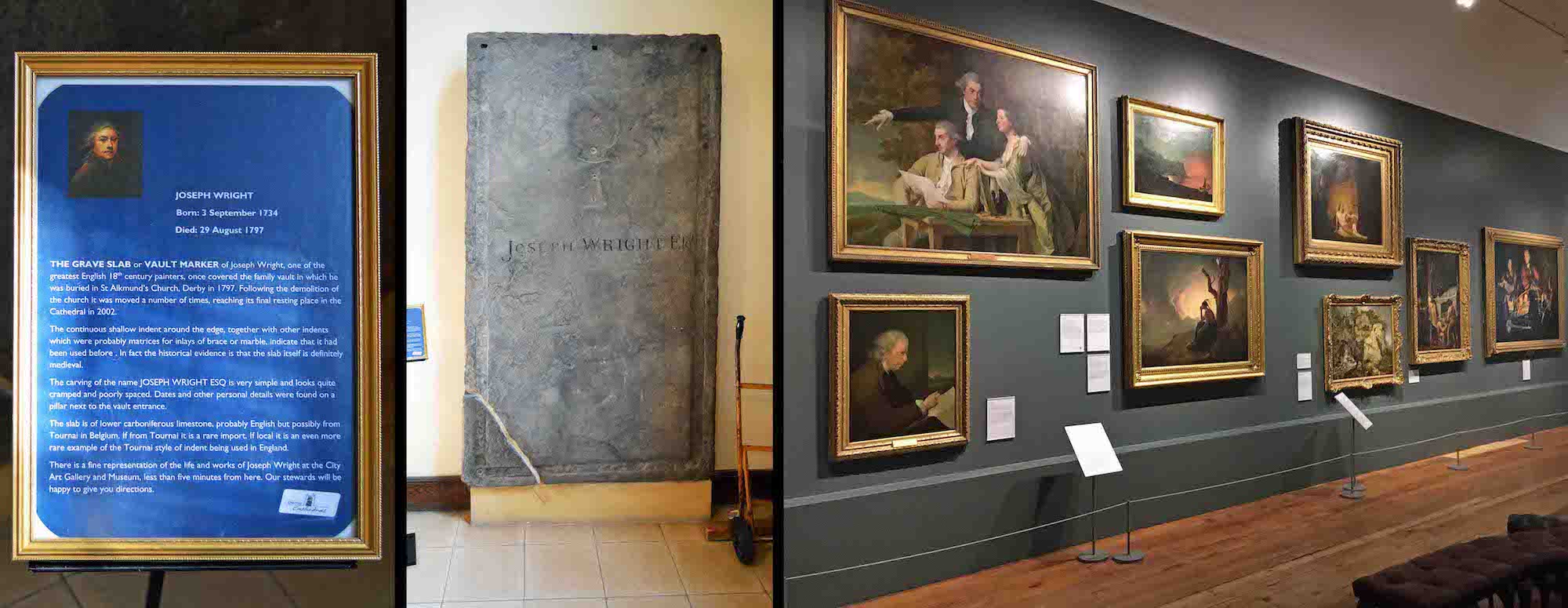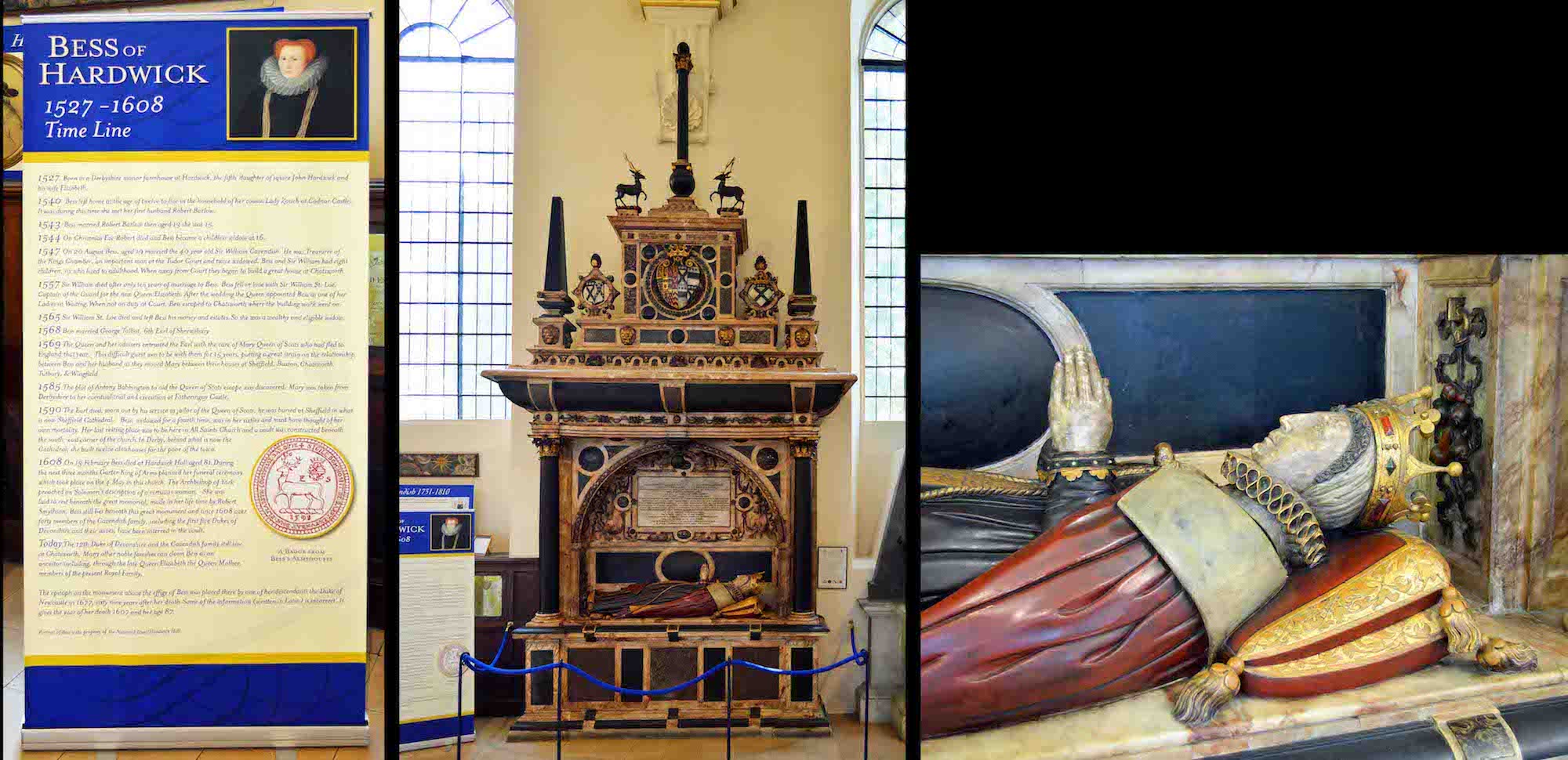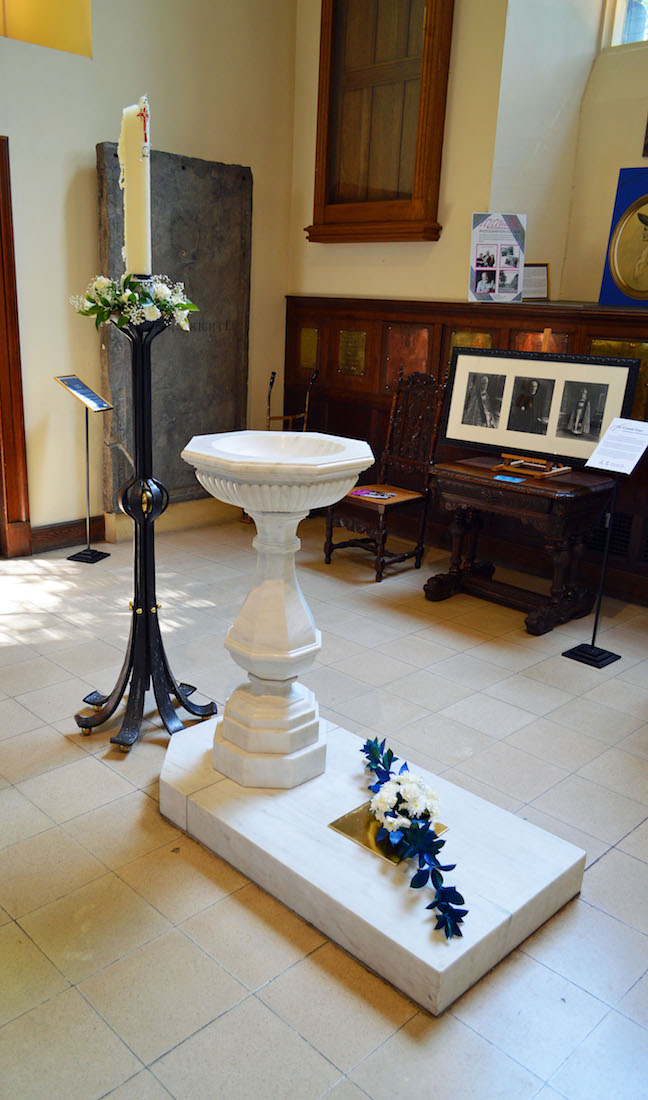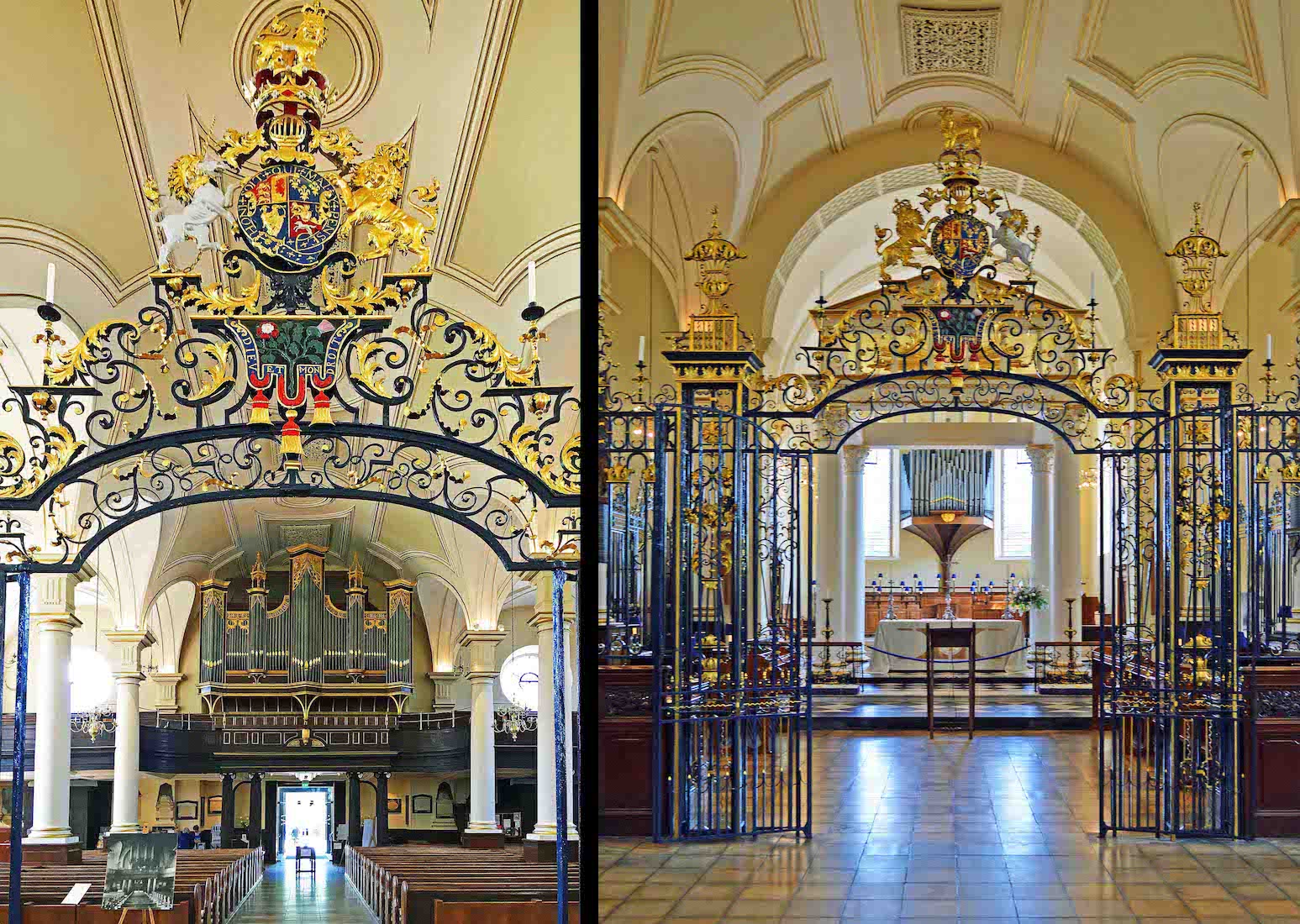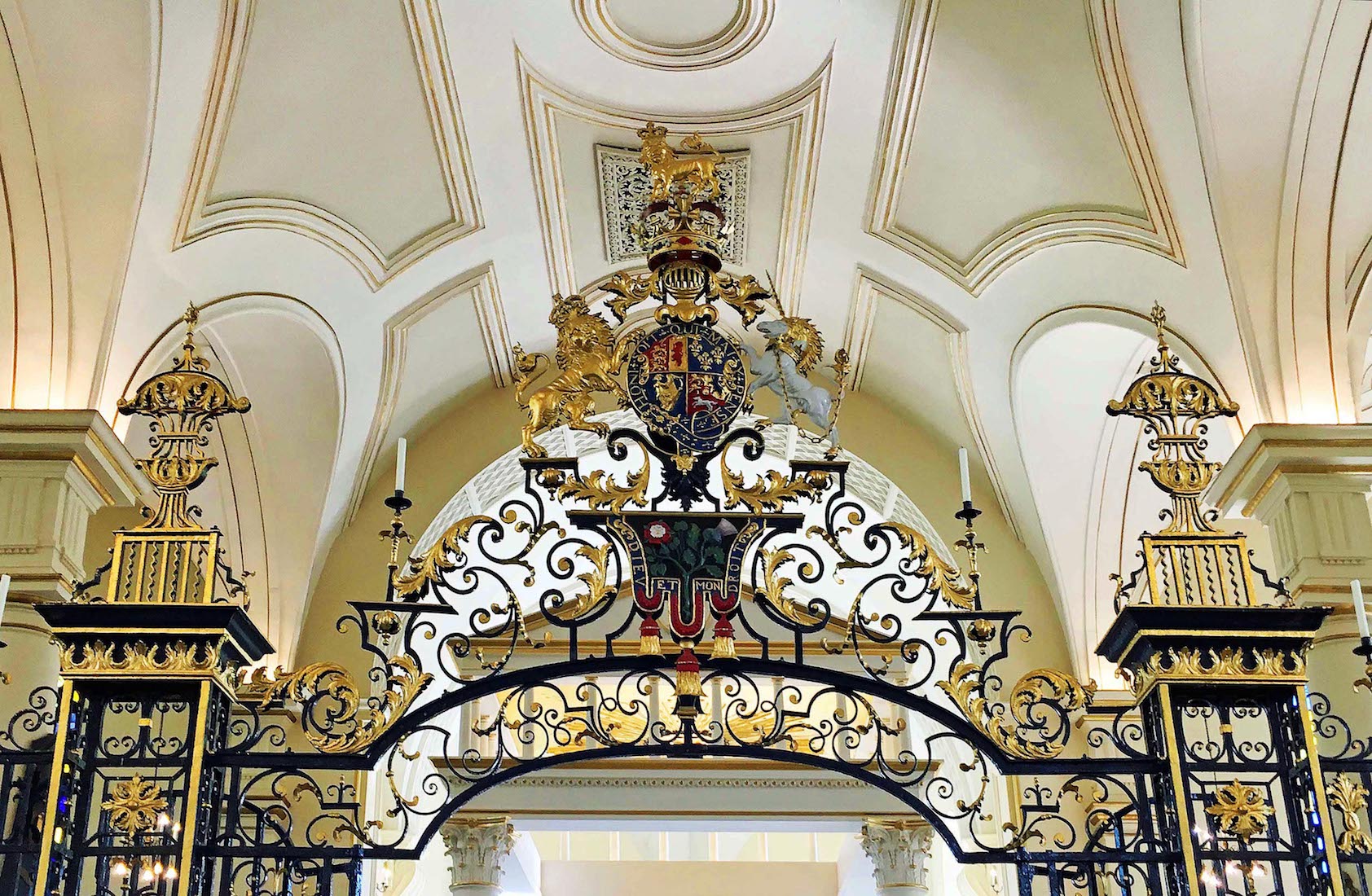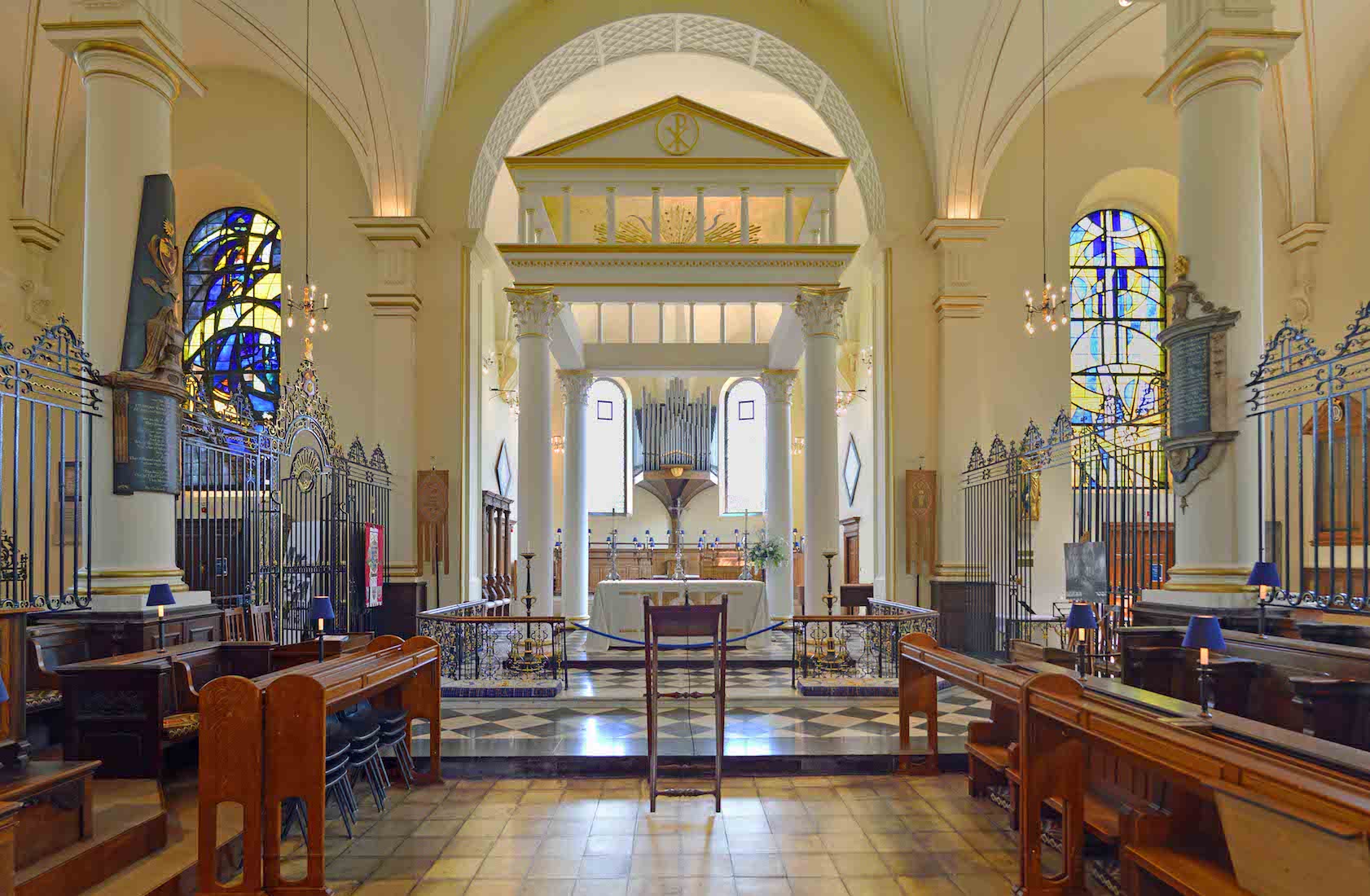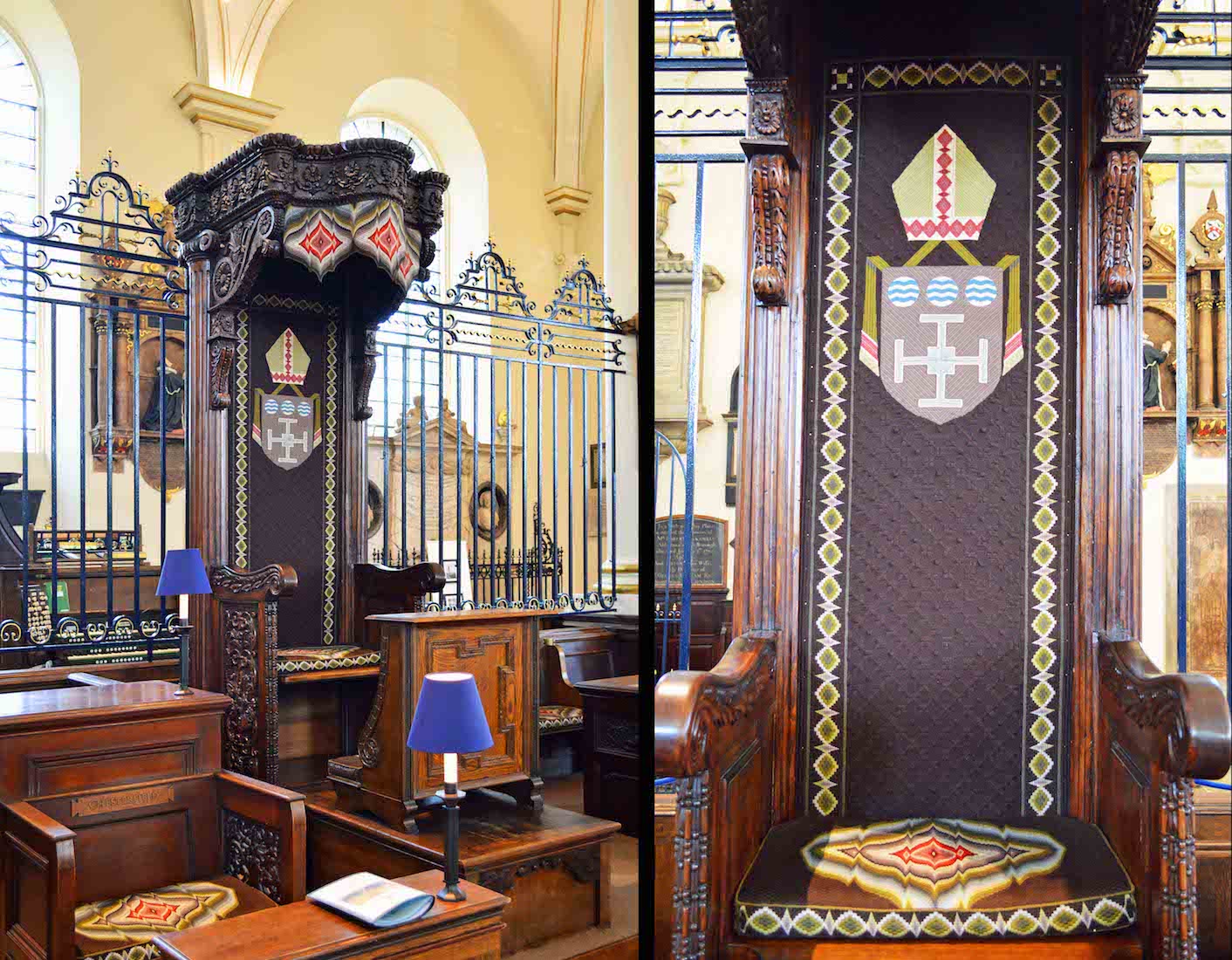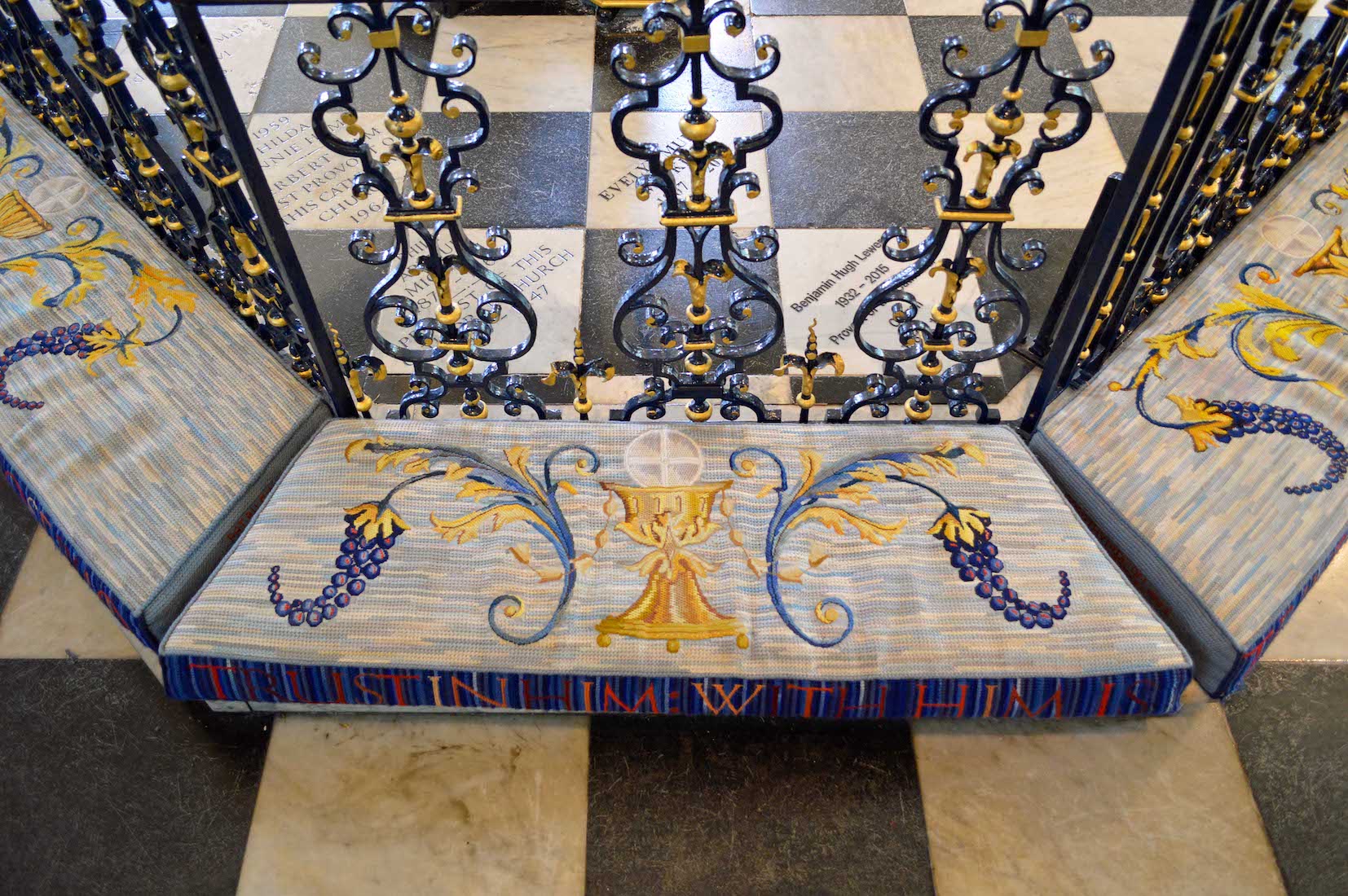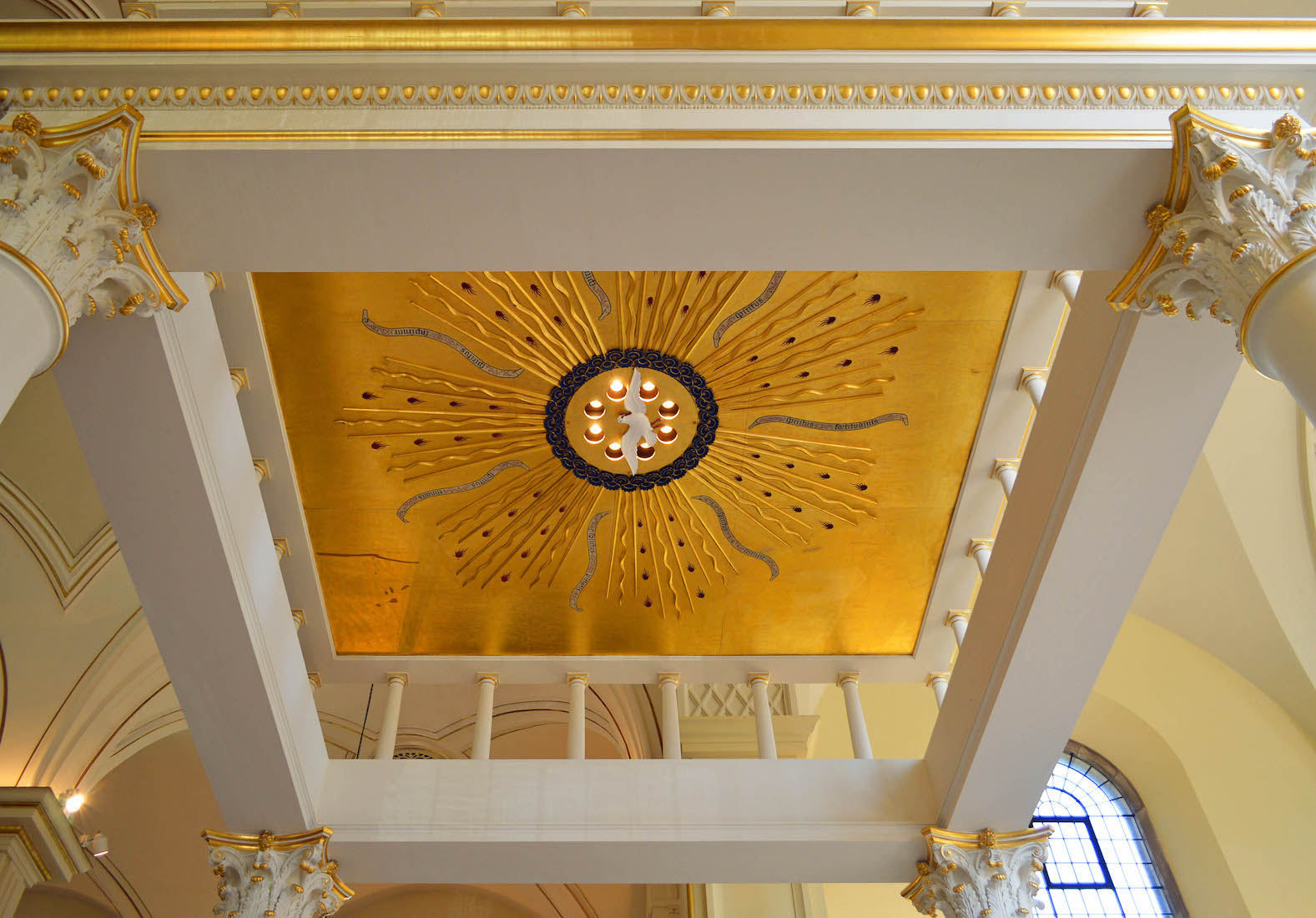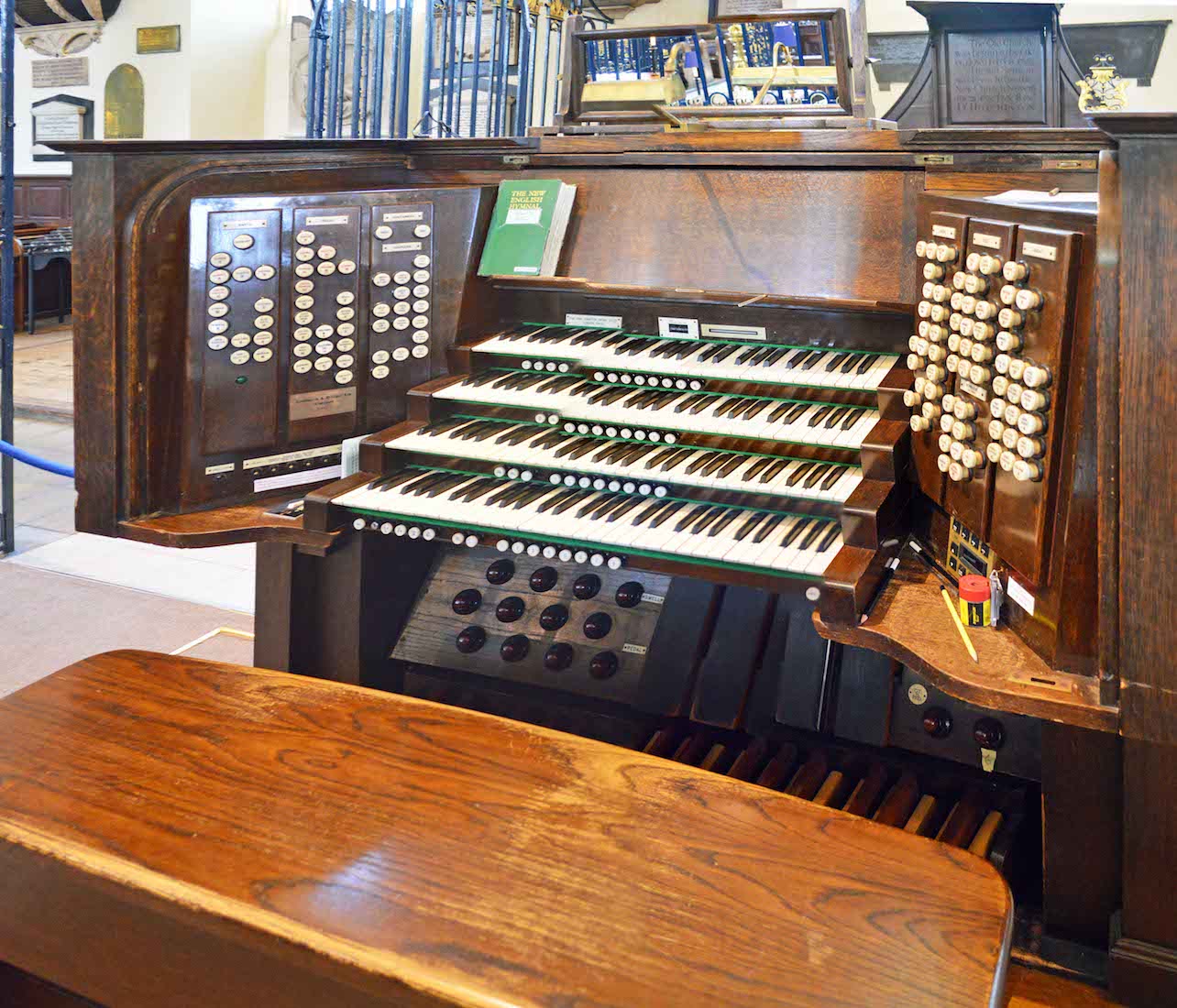
The organ is played from a four manual console in the Consistory Court area of the Cathedral. This was overhauled in 1992. PLAN
42. ALL SOULS WINDOW
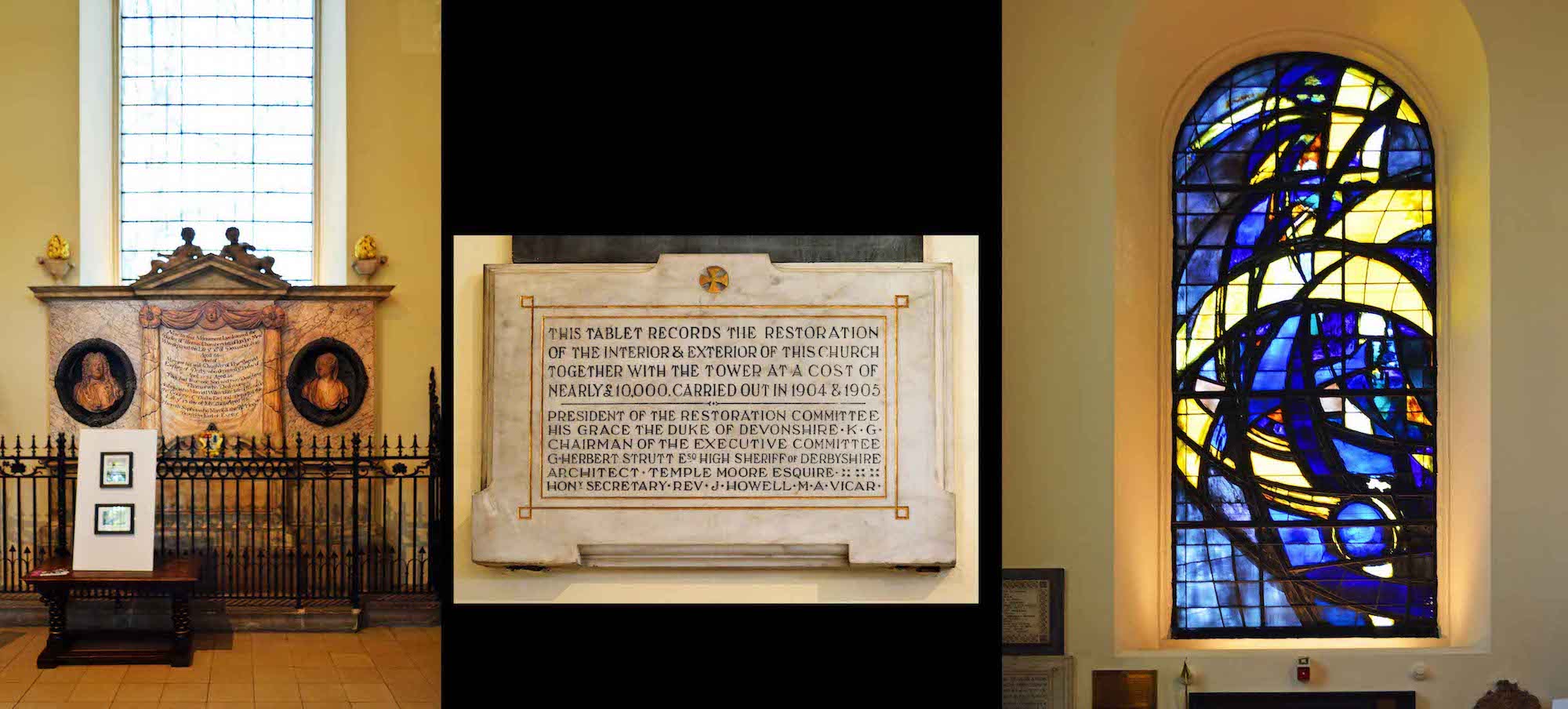
The memorial at left is for Thomas Chambers and his family. The central plaque gives information about the restoration of the Church in 1904-5. The stained glass window at right was installed in 1963. Designed by Ceri Richards it shows the ‘ancient struggle between night and day’. The window is known as the All Souls Window.
43. THROUGH TO THE SANCTUARY
Many cathedrals have an ambulatory extending from the ends of the nave aisles and curving around the central sanctuary and choir. Here we shall enter the sanctuary area, but for now turn immediately left and make our way to the retrochoir. But first, a closer look at this arch. Above the top crest is a gold pelican – an allusion to the legend that in hard times the mother pelican pierces her breast to feed her chicks with her own blood. Early Christians related this to the sacrifice of Christ.
44. WALL HANGINGS
Straight away we come to the hanging on the left. It features a crown and three banners with the word ‘Sanctus’ (Holy), surrounded by the text: ’All ye holy and humble men of heart bless ye the Lord’ (Prayer of Azariah 1:65 – The Apocrypha). The hanging on the right is placed in a similar position on the South side. It features the Risen Lord surrounded by text which I am unable to translate.
46. RETROCHOIR ORGAN
We come to the East wall of the retrochoir where there are further organ pipes. In 1973, this additional instrument was installed in the new retro-choir (as it was then) by Cousans of Lincoln. Below the pipes is seating for the choir.
47. ENTERING THE CAVENDISH AREA
We could cut straight across to the Cavendish area on the South side, but we get a better idea if we return to the nave and enter through the South entry of the nave screen.
48. THE CAVENDISH AREA
We might well ask why this part of the Cathedral is called the Cavendish area, but for now let us check out the many items of interest. From the left is a golden Madonna and Child, a hanging staff, the stained glass window, and a grey tombstone against the wall. And on the adjcent wall are several very large memorials. In front of the window is a white baptismal font and Paschal candle.
49. MADONNA WITH CHILD, AND STAFF
The statue of the Blessed Virgin Mary and Child formerly stood in the Convent Chapel of the Community of the Holy Name at Malvern Link. It was given into the care of the Cathedral in 1990 when the community moved to Oakwood in Derby. The bishop’s staff is well worn and appears to feature a thistle at the top.
50. STAINED GLASS WINDOW
This is the second of the two windows which were installed in the East wall in 1963. It too was designed by Ceri Richards to show the ‘ancient struggle between night and day’. This window is The All Saints window and shows the triumph of the light over the darkness.
51. JOSEPH WRIGHT MEMORIAL
At centre is the grave slab of Joseph Wright, a great English 18th Century painter. The slab came to the Cathedral in 2002. As indicated in the information at left, there is a display of Joseph Wright’s paintings in the Derby City Art Gallery and Museum. The photograph at right shows a wall of his attractive paintings (not in the Cathedral!).
52. BESS OF HARDWICK MEMORIAL
We turn now to the South wall of the Cavendish area to find this large memorial. Elizabeth Cavendish, later Elizabeth Talbot, Countess of Shrewsbury (c. 1527–1608), known as Bess of Hardwick (neé Elizabeth Hardwick), of Hardwick Hall in Derbyshire, was a notable figure of Elizabethan English society. By a series of well-made marriages, she rose to the highest levels of English nobility and became enormously wealthy. Bess was a shrewd business woman, increasing her assets with business interests including mines and glass-making workshops.
53. FONT AND PASCHAL CANDLE
The font was placed here in 1974. It is sculpted in Pentelic marble from the Aegean to a design of James Gibbs. Baptism is regard as a rite of entry into the Christian church. The Paschal candle reminds us that Christ is the Light of the World.
54. HENRY CAVENDISH
Close by the large Bess of Hardwick memorial are these smaller(!) plaques. By the middle of the nineteenth century, some 44 coffins of the Cavendish family occupied the Church vaults. Shown here are some of the engraved coffin plates. Of particular interest is the reminder of Henry Cavendish, the renowned scientist who first isolated hydrogen, and also, remarkably accurately calculated the weight of the earth.
55. TO THE SANCTUARY
We leave the Cavendish area and return to the nave. At centre is this spectacular arch – spectacular from both sides, looking through to the organ at each end. This Cathedral treasure is part of the 18th-century wrought iron rood screen manufactured by Robert Bakewell, for which he was paid £157.10.0d.
56. SCREEN DETAIL
The central arch of the screen features an elaborate Royal coat of arms.
57. SANCTUARY
In this general view of the sanctuary, we can see at the sides reminders of our visit thus far. But now we notice the choir stalls, and the altar under its grand baldacchino – the imposing canopy. Also at left is the cathedra.
58. CATHEDRA
Every cathedral has a cathedra – this is where the title comes from. The word ‘cathedra’ is from the Latin and means seat or throne. This is the chair of the Bishop of the diocese, and denotes his (her) association with this particular church. On the back of the chair is the coat of arms of the Derby diocese: a Jerusalem cross below three ‘fountains’. I am open to interpretation!
59. KNEELERS
The altar is surrounded by a low wrought iron railing with a space at centre front. Kneelers are placed around the railing for the use of those taking the Eucharist. Each of these kneelers depicts a chalice with wafer, and two fruiting branches of grape vine.
60. BALDACCINO
The baldaccino (baldachin) or altar canopy forms part of Sebastian Comper’s design for the Eastern extension of the Cathedral. Its angular lines and Corinthian columns contrast dramatically with the interacting curves of Gibbs’ nave ceiling. The golden ceiling of the baldaccino itself is part of the tester designed by Ninian Comper (father of Sebastian) which was suspended over the altar from 1927. It shows rays of light streaming out from the central dove of the Holy Spirit.


